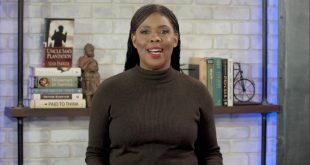 Most liberals and even some conservatives are arguing that Kentucky county clerk Kim Davis must either issue marriage licenses to same-sex couples or quit her post. Where you stand on this issue too often comes down to a case of where you stand on the question of whether same-sex nuptials are now “the law of the land” because Justice Tony Kennedy and four of his black-robed cohorts say so.
Most liberals and even some conservatives are arguing that Kentucky county clerk Kim Davis must either issue marriage licenses to same-sex couples or quit her post. Where you stand on this issue too often comes down to a case of where you stand on the question of whether same-sex nuptials are now “the law of the land” because Justice Tony Kennedy and four of his black-robed cohorts say so.
We all know about the Defense of Marriage Act. President Obama announced early in his administration that he would not enforce that law. This 1996 act had been overwhelmingly passed by Congress and signed by President Bill Clinton. That law could have passed both Houses without a single Republican voting for it.
State constitutional amendments protecting marriage similar to the federal Defense of Marriage Act had been approved in 32 states over the decade. Fifty million Americans voted in those referendums.
The U.S. Supreme Court—in another act of “raw judicial power” akin to the infamous 1973 Roe v. Wade ruling that overturned the homicide statues of all fifty states—has recently issued a ruling saying marriage is whatever the Court says it is.
By the narrowest of margins (5-4), and citing nothing in the history or text of the Constitution itself, the majority in Obergefell last June overturned thousands of years of societal norms and engaged in the worst instance of voter suppression in American history.
Similarly, this President has flouted U.S. immigration laws. He has tolerated so-called Sanctuary Cities where liberal ideologues flagrantly defy “the law of the land.”
Also worrisome is the failure of this administration to enforce federal laws on drugs. Colorado and Washington State passed referendums that violate federal law on the sale and use of marijuana. One might make a case for repealing federal laws on this subject, but we have such a law. And President Obama is ignoring it.
Family Research Council’s Marriage and Religion Research Institute (www.marri.us) has shown how family breakdown leads to increased drug use, which we know to be harmful to children, to youth, and to adults.
Some states have passed and others are regrettably considering laws to permit physicians to kill their patients by administering lethal drugs. These are masked as “right to die” laws and “death with dignity” measures. But as with the horrors of killing innocent unborn children, these vague and unenforceable enactments have led and surely will lead to abuse. More innocents will die. And this administration approves this tendency.
In fact, President Obama when a candidate said he regretted only one thing in his brief Senate career. He told the late Tim Russert he wishes he had objected when the Senate gave its unanimous consent to letting Terri Schiavo’s stricken family go into federal court to save her life. In brief, Mr. Obama wanted Terri Schiavo—who was not in a coma and not dying—to be put to death more quickly and without access to the courts.
There are and must be many ways to protect the conscience rights of public officials. Military doctors and nurses—and many others in the healing professions—have long enjoyed conscience rights not to take part in the destruction of innocent human life. Doctors have successfully lobbied in many states for the rightnot to take part in lethal injections in state prisons.
Surely, a free republic can find the means to exempt conscientious objectors from having either to violate their beliefs or quit the offices to which they were elected. We are seeing in the Kim Davis case—and in a host of cases of Americans being conscripted into the gay pride movement—a dangerous assault on liberty.
Shall we be ruled by the Supreme Court and only the court? President Lincoln did not think so. With all due respect, he told the Supreme Court justices of his day, they could not overrule the American people. In his first Inaugural Address, he said:
And while it is obviously possible that such decision may be erroneous in any given case, still the evil effect following it, being limited to that particular case, with the chance that it may be overruled and never become a precedent for other cases, can better be borne than could the evils of a different practice. At the same time, the candid citizen must confess that if the policy of the Government upon vital questions affecting the whole people is to be irrevocably fixed by decisions of the Supreme Court, the instant they are made in ordinary litigation between parties in personal actions the people will have ceased to be their own rulers, having to that extent practically resigned their Government into the hands of that eminent tribunal.
We should stand with Lincoln on this one and seek accommodation of conscientious objectors’ First Amendment rights as we go forward.
 Ken Blackwell is a senior fellow at the Family Research Council and the American Civil Rights Union, and on the board of the Becket Fund for Religious Liberty.
Ken Blackwell is a senior fellow at the Family Research Council and the American Civil Rights Union, and on the board of the Becket Fund for Religious Liberty.
 CURE News and Clergy Blog News and Commentary for Christians
CURE News and Clergy Blog News and Commentary for Christians



